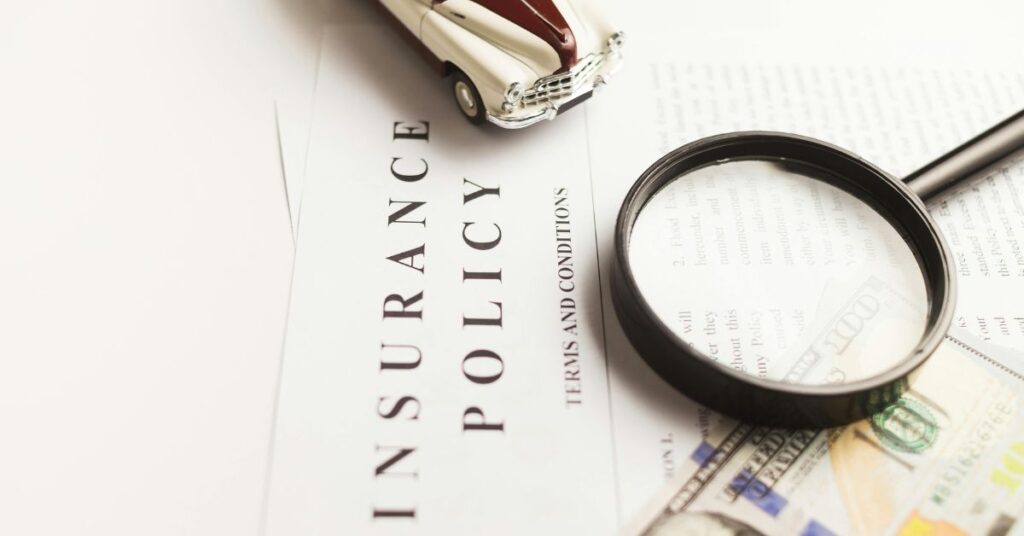
Ever wonder why your car insurance keeps climbing despite your spotless driving record? Small, seemingly innocent decisions could be sabotaging your wallet. So, we’ve decided to reveal all of these overlooked mistakes for you to know and avoid. Here are the unexpected, small ways your habits and choices negatively impact your premiums.
Ignoring Your Credit Score
Many people don’t connect their credit score to car insurance rates, but insurers often do. In states where it’s allowed, a lower score can indicate higher risk, even for excellent drivers. However, some states, including California, Hawaii, and Massachusetts, prohibit this practice. Keeping your credit healthy can still save you money, depending on your location.
Overlooking Policy Bundling Options
Combining insurance policies might be one of the easiest ways to save. Insurers often reward customers who bundle auto and home insurance with significant discounts. Consider bundling your insurance policies to benefit from a welcome reduction in your overall premiums.
Forgetting to Update Your Mileage
Your driving habits affect your premiums more than you might think, especially if you’ve shifted to remote work or reduced your mileage. You could be paying for depreciation that no longer happens—if you’ve forgotten to update your lack of commuting to your insurer. Report your annual mileage to make a notable difference.
Exploring Niche Policies for Unique Driving Needs
Insurance isn’t one-size-fits-all. While alternatives like pay-per-mile insurance or policies for low-risk drivers can save money by aligning with your driving habits, they aren’t offered by all insurers and may not suit every driver. Exploring your options helps ensure you avoid overpaying for generic coverage.
Paying for Unnecessary Coverage
Coverage that once made sense might not anymore. For older cars with declining value, comprehensive and collision insurance might no longer be worth the cost. Review your coverage needs regularly to ensure that you aren’t paying for protection you no longer realistically need.
Skipping a Defensive Driving Course
Taking a defensive driving course results in more than just improved road safety. Many insurers provide discounts for drivers who complete these programs. It’s an investment in both your skills and your wallet, with the potential for long-term insurance premium savings.
Misclassifying Your Vehicle Usage
How your car is used directly affects your premiums. You’re likely overpaying for it if it’s listed as a business vehicle but used personally. Business vehicles are subject to wear and tear that personal vehicles just aren’t, which is the reason behind the stark difference in the premiums. Confirm the accurate classification of use to prevent unnecessary expenses.
Overlooking Discounts for Safety Features
Did you know modern safety features also reduce your insurance costs besides protecting you? Cars that feature airbags, advanced driver assistance systems, and anti-lock brakes often qualify for discounts. Double-checking with your insurer can reveal savings you didn’t know existed.
Letting Your Policy Lapse
Insurance gaps send red flags to providers as they signal irresponsible financial behavior. Even a minor cessation of coverage can cause higher rates when you finally manage to renew. It is vital to stay insured without interruptions, as it protects both your driving record and your wallet in the long run.
Neglecting Routine Vehicle Maintenance
An overlooked yet significant factor, vehicle maintenance can indirectly affect your premiums. Poorly maintained cars are more prone to accidents or breakdowns, which raises your perceived risk. Keeping up with maintenance ensures safety and keeps your insurance costs steady.
Not Adding a Teen Driver Correctly
It’s not surprising that teen drivers bring additional risks, but there are ways to offset the inevitable cost. Many insurers offer discounts for teenagers with good grades or those who have completed safe driving courses. Explore these options to ensure adding a young driver doesn’t break the bank.
Parking Location Oversights
This may seem a little weird, but where your car spends the night matters. If you park in a garage instead of on the street or in your driveway, your car is at a lower risk of theft or accidental damage, which, in turn, leads to better rates. Keep your insurer updated with these details to help yourself save.
Forgetting About Minor Traffic Tickets
A ticket here and a ticket there—small infractions add up over time. Even minor violations like speeding can raise your premiums with the kind of message it sends to your provider. To mitigate the impact and keep your rates manageable, take a defensive driving course. This will demonstrate responsibility and assure your provider.
Overlooking Discounts for Eco-Friendly Vehicles
Besides being good for the planet’s environment, driving a hybrid or electric car can also be great for your wallet. Many insurers offer discounts for environmentally friendly vehicles to meet their corporate goals of contributing to sustainability. Therefore, double-checking if your car qualifies and taking advantage of these perks should be your approach as an EV driver.
Not Updating Your Address
As you move to a safer neighborhood or a less congested area, you can lower your risk profile without even realizing it. Once you update your address with your insurer, the relative safety of your new location will ensure that your premium reflects your now-reduced risk factors accurately.
Overestimating Deductibles You Can Afford
You can bring down your premiums if you choose a higher deductible, but it’s not always feasible in a functional sense. When an emergency arises, and the deductible is beyond your reach, you’ll cause trouble when you want it the least. Pick a realistic amount to strike the right balance between savings and safety.
Insuring Additional Drivers Incorrectly
Every driver listed on your policy impacts your premium differently. If you mislabel who are occasional drivers as primary users, you can inadvertently end up incurring higher costs if the occasional driver has red flags for insurers. Providing accurate details about who drives your car ensures you aren’t overpaying.
Overlooking Loyalty Discounts
Long-term policyholders might qualify for exclusive rewards. While exploring new providers is wise, don’t forget to ask your current insurer about loyalty benefits that either you don’t know about or haven’t been articulated to you. You could find savings without ever switching your provider.
Avoiding Modifications That Serve As Theft-Magnets
Your car might be an extension of your personality but don’t forget that it is also connected to your wallet. Providers often balk at cars that have expensive rims, carbon-fiber spoilers, and flashy hood ornaments since they are all easy to purloin. This increased risk ultimately reflects on the increased premiums, both of which are easy to avoid.
Forgetting to Negotiate After an Accident
An accident doesn’t always have to mean skyrocketing rates. Many insurers offer accident forgiveness or programs that minimize premium increases that would normally be triggered after such an incident. Review your policy and ask about these options so that you can help control costs after a claim.


